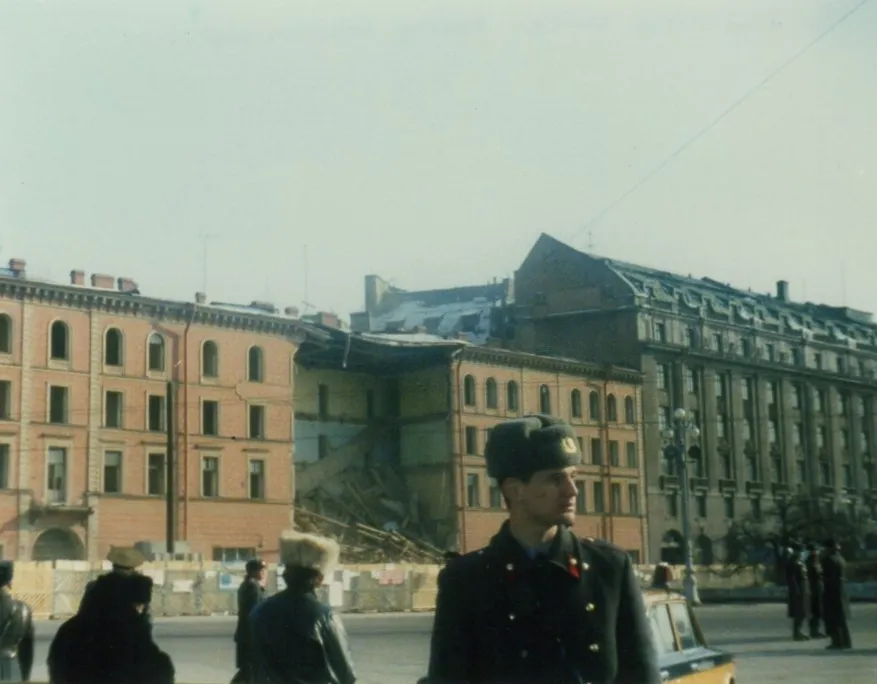
Today Classical Pursuits talks with Rosemary Gould, who is leading our upcoming seminar The Devil Went Down to Moscow. Rosemary has been leading seminars for Classical Pursuits for many years, most recently at Toronto Pursuits, July 2024. She has a PhD in English literature from the University of Virginia. But she also studied Russian in college and spent a summer in a language program in Leningrad in 1986, when it was still behind the iron curtain. We asked Rosemary about the two reading selections for this seminar, the novel The Master and Margarita by Mikhail Bulgakov and the poem “Requiem” by Anna Akhmatova.
Melanie Blake: You describe The Master and Margarita as “possibly your favorite novel of all time.” What makes it so compelling for you?
Rosemary Gould: Several things stand out to me about The Master and Margarita. The first is the quality of the narration. Even in translation, the narrator has a fascinating personality and one that is able to shift, like a great singer, from subtle nuance to grand intensity across a single line. He can be hilarious, enraged, tender, menacing, prophetic, grief-stricken. I can’t think of many narrators who have so much range. Another thing I love is Bulgakov’s wildly creative imagination. If you haven’t read the novel, you just won’t believe the kinds of things that happen in it, and it’s amazing to me how funny it is in spite of the horror of the underlying situation it describes. There’s a joyful exuberance to it that defies all suffering. Finally, it is two novels at the same time, and the sublime way the two stories dance together is profoundly meaningful.

MB: So much about Russia and our world has changed since you studied in Leningrad (now again St. Petersburg) in 1986. As you prepare for the seminar, what has changed in the way you read them now versus then? What remains constant?
RG: I read these writings back then as very specifically about that time and place. I almost had a historian’s sense of their meaning. I was moved by the experiences that they depicted so powerfully, but I saw that as something different from my own life. Now I realize they are really about all of us. Of course, most people in North America have not lived through that kind of national terror, but these works are relevant for anyone who has experienced fear and confusion, and for anyone who might possibly die someday. There are questions and passionate answers in all of these works about what we give our loyalty to and how we live with the truth about ourselves and our shared history.
The Stalinist terror was sort of like Samuel Johnson’s famous quote about hanging: “When a man knows he is to be hanged in a fortnight, it concentrates his mind wonderfully.” Akhmatova, Bulgakov, and Mandelstam were concentrating.
MB: Taking the first four lines or so of “Requiem,” could you give us a glimpse of what participants can expect in the seminar? As you read these lines, what do you notice? What might you ask participants to think about?
No foreign sky protected me,
no stranger’s wing shielded my face.
I stand as witness to the common lot,
survivor of that time, that place.
RG: One of the things we will talk about in the seminar is how the two poets expressed their sense of their own role in writing about their time. I might ask, “What does Akhmatova mean by ‘witness,’ and why does she emphasize at the very beginning that no foreign sky protected her?”
We will use the methods of shared inquiry to discuss all of these works, so we’ll be looking very closely at the writing itself to try to answer questions rather than relying on biography or literary criticism. I say, “What does Akhmatova mean…” but I don’t really believe that we can know what she meant. It’s a way of saying, “How do we understand the meaning of this word, ‘witness,’ not in general but as it is elaborated throughout this poem?”
It’s also important to examine any metaphors that the poet uses, so I would want to ask why a stranger’s “wing” in particular. What feeling does that give us? What does it suggest about the stranger?
MB: What do you hope participants will gain from reading these texts together?
RG: I believe these are most of the greatest works of what’s called the “Silver Age” of Russian literature. These three writers address their conditions in such different ways that I hope the experience of looking at them together will highlight their unique accomplishments. They have taught me that there’s no limit to the human imagination in all of its variety and different kinds of power, and not even Stalin could keep these voices from being heard. I believe reading them together will amplify the awe we may feel at the depth and courage of these writings.
MB: Thank you, Rosemary! Readers, Rosemary offers truly transformative seminars for poetry lovers and the poetry-curious. Don’t miss out, register today for The Devil Went Down to Moscow.
Image credit: By Shylalp – Own work, CC BY-SA 4.0, https://commons.wikimedia.org/w/index.php?curid=95012141


